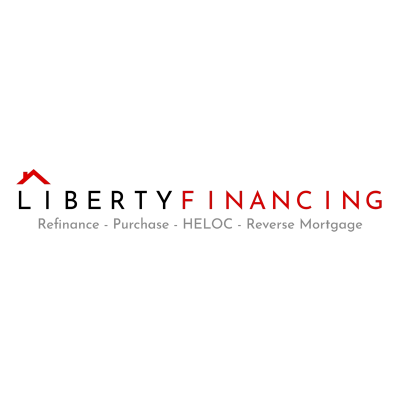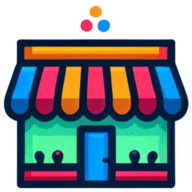25 Tips for Navigating the Challenges of Rapid Business Growth
Navigating the complexities of business expansion requires more than just ambition; it demands strategic insight and proven practices. This article delves into the challenges of rapid business growth, offering actionable tips and wisdom gleaned from industry veterans. Readers will gain valuable perspectives on scaling businesses effectively while maintaining quality and core values.
- Scale Intentionally, Not Hastily
- Create Scalable Systems Before Crisis Hits
- Prioritize Quality Over Rapid Expansion
- Build Efficient Processes for Sustainable Growth
- Maintain Core Values During Expansion
- Rethink Strategy Before Scaling Marketing
- Balance Growth with Personal Care
- Evolve Culture Alongside Business Expansion
- Leverage Technology to Maintain Service Quality
- Implement Structured Hiring for Rapid Growth
- Streamline Processes to Handle Increased Volume
- Automate Support While Preserving Personal Touch
- Prioritize Cash Flow During Rapid Growth
- Invest in Knowledge Distribution, Not Just Headcount
- Plan for Scalability in Technical Processes
- Empower Your Team to Enable Growth
- Focus on Customer Experience While Scaling
- Offer Competitive Benefits to Attract Talent
- Prioritize Service Quality Over Growth Speed
- Balance Expansion with Consistent Care Standards
- Acknowledge and Address Growth Challenges Proactively
- Build Systems That Work Without You
- Align Team with Company Values During Growth
- Delegate Effectively to Scale Yourself
- Create a Strong Foundation for Growth
Scale Intentionally, Not Hastily
One unexpected challenge I faced as a new entrepreneur was scaling too quickly without a solid foundation. Early success gave me a false sense of readiness, and I rushed into expanding. I hired rapidly, broadened my services, and pushed for fast growth, believing momentum alone would carry me forward. But the reality hit hard: my systems, processes, and team structure weren't prepared for the expansion. Soon, everything felt chaotic, tasks slipped through the cracks, customer satisfaction dropped, and my team felt overwhelmed because the internal operations couldn't keep up with the external growth. Financially, scaling too quickly without proper systems led to inefficiencies and unexpected costs, cutting into profits and creating unnecessary stress.
This experience taught me that growth should be intentional, not rushed. Expanding without structure is like building a house on sand, impressive at first, but quick to collapse under pressure. I had to take a step back and focus on building scalable systems, streamlined workflows, clear communication protocols, and automated processes that could support growth without breaking down. I also learned the importance of hiring not just quickly but strategically, bringing in people whose skills matched both the current needs and future vision of the business.
My advice? Master one thing before you add more. Don't let excitement push you into rapid expansion before your operations are truly ready. Invest time in refining your systems, testing your processes, and building a team that can grow with you. Sustainable growth isn't about speed, it's about preparation and consistency.

Create Scalable Systems Before Crisis Hits
During our rapid growth at spectup, one unexpected challenge came from scaling our quality standards while handling an increasing number of startup clients. I remember one particularly stressful period when we went from helping a handful of startups to managing dozens simultaneously - suddenly, our carefully crafted processes weren't quite cutting it anymore.
This reminded me of my time at N26, where I learned that rapid growth can quickly expose gaps in your operational framework. We tackled this at spectup by taking a step back and implementing a structured knowledge-sharing system, something I picked up during my time at Deloitte's Innovation & Ventures team. Instead of having information siloed with individual team members, we created standardized playbooks that maintained our high-quality standards while allowing for faster onboarding and consistent delivery.
My advice, shaped by working with over 100 startups and seeing that 38% fail due to cash flow issues, is to build scalable systems before you desperately need them. At BMW Startup Garage, I saw how proper documentation and clear processes could make or break a company's ability to handle growth effectively.

Prioritize Quality Over Rapid Expansion
One unexpected challenge we faced during a period of rapid growth was maintaining the same level of quality and customer service while scaling up. As demand increased, we had to hire more team members quickly, but finding skilled arborists who met our high standards wasn't easy. Without careful hiring and training, there was a risk of inconsistent service, which could have hurt our reputation. My years of experience in the industry, along with my arborist certification and TRAQ training, helped me identify the right talent and implement a structured training program. By focusing on hands-on training and ensuring every team member understood our commitment to safety and customer satisfaction, we were able to grow without compromising the quality that built our reputation in the first place.
For others experiencing similar growing pains, my advice is to never sacrifice quality for speed. Scaling up is important, but if you don't have the right team in place, customer trust can erode quickly. Take the time to hire carefully, provide thorough training, and reinforce your company's values with every new employee. Customers will notice when a company stays consistent, and that's what leads to long-term success. Growth is exciting, but maintaining a solid foundation is what keeps a business thriving.

Build Efficient Processes for Sustainable Growth
One unexpected challenge I encountered during rapid business growth was scaling operations while maintaining quality and client experience. As Marquet Media expanded, demand skyrocketed. While growth is a great problem, it also stretches internal resources, leading to bottlenecks in execution, communication gaps, and the risk of burnout. Suddenly, what had worked at a smaller scale--customized client interactions, hands-on strategy, and a lean team--wasn't sustainable. I realized that if we didn't streamline processes and strengthen our infrastructure, we'd hit a plateau or, worse, compromise the reputation we had built.
To overcome this, I systematized key workflows, built a scalable team structure, and leveraged automation strategically. I implemented standard operating procedures (SOPs) and integrated AI-driven tools to handle repetitive tasks while maintaining high-touch client engagement. More importantly, I learned to delegate effectively--which can be difficult for founders who are used to being involved in every detail. My advice to others experiencing growing pains is this: anticipate scalability challenges before they happen, document processes early, and build a strong, adaptable team. Growth should feel empowering, not overwhelming, and the key to sustaining momentum is knowing when to let go of control and invest in long-term efficiency.

Maintain Core Values During Expansion
One unexpected challenge I faced during a period of rapid business growth was maintaining the same high level of quality and customer service while taking on a larger volume of work. As demand for Ozzie Mowing & Gardening grew, I found myself needing to expand my team quickly. Hiring the right people wasn't just about finding skilled gardeners. It was about ensuring they shared my passion for horticulture, my attention to detail, and my commitment to customer satisfaction. With over 15 years of experience in the industry and a certification in horticulture, I knew that knowledge and technical skills could be taught, but work ethic and care for the craft had to come naturally. I overcame this challenge by implementing a thorough training process, where every new team member worked alongside me before taking on jobs independently. This ensured they understood not just the technical aspects of the job but also the high standards we uphold in customer service.
Another key challenge was maintaining efficiency without sacrificing the personal touch that sets us apart. As our client base grew, it became essential to optimize scheduling and operations. I used my years of experience to refine our workflow, ensuring we had the right tools and processes in place to complete jobs effectively while still giving clients the personalized service they expect. Investing in better equipment, streamlining communication, and using technology to track appointments all played a role in keeping things running smoothly. My advice to others experiencing rapid growth is to stay true to the values that made your business successful in the first place. Growth is exciting, but it's only sustainable if you maintain the quality and relationships that built your reputation.
Rethink Strategy Before Scaling Marketing
When a business grows fast, everyone celebrates until they realize growth doesn't solve problems, it amplifies them. No one tells you that scaling a marketing campaign that works at $10K/month might fail miserably at $100K/month.
Would you rather double your budget and waste half of it or rethink your strategy before scaling? We learned this the hard way. When we increased ad spend, our CPL skyrocketed. The same channels, the same creatives just worse results. Turns out, scaling too fast triggered "ad fatigue" and drowned us in low-quality leads.
A 2022 Facebook Ads study showed that frequency above 3x per user leads to a 21% drop in CTR. We were running seven. Our fix? Instead of blindly increasing budgets, we diversified. We split our spend across new platforms, added more video content, and tested hyper-localized messaging. Within two months, our lead quality rebounded, and our CPL dropped by 35%. The lesson? Growth isn't just about doing more, it's about doing better.

Balance Growth with Personal Care
I struggled with maintaining the personalized care that made us stand out. As patient numbers increased, it became challenging to keep up with the demand while ensuring every patient felt valued. To overcome this, I focused on building efficient systems and hiring staff who shared my commitment to exceptional care. It was crucial to find the right balance between scaling operations and keeping that personal touch intact. My advice to others facing similar challenges is to invest in training and hire a team that aligns with your values. This will help preserve the quality and experience that your customers trust. For any business, the key is to scale without losing sight of what made you successful. Maintaining strong values and a dedicated team ensures customers always feel valued.

Evolve Culture Alongside Business Expansion
One unexpected challenge I encountered during a period of rapid business growth was maintaining company culture and operational efficiency while scaling the team. As we expanded quickly, we hired new talent at a fast pace, but soon realized that our once-close-knit, agile team was struggling with communication gaps, inconsistent workflows, and a diluted company culture. The speed of hiring had outpaced our ability to integrate and align new employees effectively, leading to inefficiencies and misaligned expectations.
To overcome this, we implemented a structured onboarding process, clear documentation of workflows, and stronger internal communication channels. We also reinforced our core values by integrating them into hiring, performance reviews, and leadership training. One of the most effective changes was introducing cross-functional "culture champions"—long-time employees who helped new hires adapt while ensuring company values remained intact.
For businesses experiencing similar growing pains, my advice is to scale with intention. Growth isn't just about adding headcount or revenue—it's about ensuring your people, processes, and culture evolve in sync. Invest in structured onboarding, transparent communication, and a strong leadership team to guide new employees. If growth starts creating inefficiencies, pause and refine internal operations before pushing forward. Sustainable growth always beats chaotic expansion.

Leverage Technology to Maintain Service Quality
One unexpected challenge we faced during a period of rapid growth at Zapiy.com was scaling our customer support without losing the personal touch that set us apart. As our user base expanded quickly, the number of support inquiries skyrocketed. We didn't want to sacrifice the high-quality, personalized service that helped us build trust with our customers, but we also couldn't keep up with demand manually.
To overcome this, we implemented a hybrid support model--leveraging AI-powered chatbots to handle common inquiries while keeping our human support team focused on more complex issues. This not only reduced response times significantly but also ensured that customers still felt heard and valued. We also built a self-service knowledge base, empowering users to find answers on their own.
My advice to others facing similar growing pains? Automate what you can, but don't lose sight of what makes your brand special. Growth is exciting, but maintaining the customer experience that got you there in the first place is what will sustain you long-term.
Implement Structured Hiring for Rapid Growth
Scaling too fast exposed a major challenge--hiring the right people at the right speed. The pressure to expand meant filling roles quickly, but rushed decisions led to misaligned hires. Some lacked the necessary skills, while others disrupted the culture. The result? Wasted time, lower productivity, and setbacks that could have been avoided.
The solution was shifting from reactive hiring to a structured process. Job descriptions became more precise, screening improved, and structured interviews ensured consistency. A strong referral system brought in candidates who aligned with company values. Investing in training also reduced reliance on external hires. For example, implementing a trial project before offering a full-time role revealed true capabilities beyond what a resume or interview could show.
For those experiencing rapid growth, hiring strategically is non-negotiable. Quality over speed prevents long-term problems. Build a scalable hiring process early, focus on cultural fit, and develop internal talent. Growth is only sustainable when the right people drive it.
Streamline Processes to Handle Increased Volume
During a period of rapid growth, one challenge that caught us off guard was managing the increased workload without sacrificing the quality of service we prided ourselves on. As loan applications came in faster than ever, small inefficiencies in our processes started to become bigger problems. Communication delays, longer turnaround times, and an overwhelmed team made it clear that our current system wasn't built to handle the volume!
To fix this, we took a step back and focused on making our processes more efficient. We streamlined how we handled applications, introduced automation for repetitive tasks, and made sure our team had the training and support they needed to keep up. Instead of just hiring more people right away, we focused on improving how we worked first. That approach helped us scale sustainably, and it's something I'd recommend to any business experiencing growing pains. Fix the bottlenecks first before adding more to the workload!

Automate Support While Preserving Personal Touch
One of the unexpected challenges we faced during our rapid growth was our customer support team. As our customer base grew, we found ourselves overwhelmed with support tickets, and response times slowing down and customer happiness suffering. To fix this, I introduced an AI-powered chatbot to handle common questions and auto-triage tickets. I also increased the team by hiring more support staff and training them comprehensively so they could handle more complex issues efficiently. The combination of AI and a bigger team allowed us to maintain quality without compromising on speed.
My advice to others going through growing pains is to get ahead of the curve by automating where you can and investing in team training. Scaling isn't just about increasing output - it's also about making sure your systems and teams are ready for the increased load without sacrificing quality.

Prioritize Cash Flow During Rapid Growth
One unexpected challenge I faced as a new entrepreneur was balancing growth with cash flow management. Early on, I focused heavily on scaling the business but didn't fully account for how quickly expenses—marketing, payroll, and overhead—would outpace revenue in the short term.
My advice to new entrepreneurs is to prioritize cash flow planning from day one. Keep overhead lean, track expenses closely, and build a financial cushion to handle slow periods. Growth is important, but a business that runs out of cash won't survive long enough to scale. Being disciplined with finances ensures long-term success.
Invest in Knowledge Distribution, Not Just Headcount
Rapid business growth can feel like a rocket taking off, exciting, but chaotic. During our period of rapid growth, the unexpected challenge was scaling our internal systems fast enough to keep up with demand. We were getting so many new clients that our onboarding process was becoming a bottleneck, and we were losing precious time trying to manually manage everything.
Would you rather scramble to keep up with increasing demand, or would you prefer to have a scalable system in place that allows you to grow smoothly? To overcome this, we implemented a CRM system that automated much of our client onboarding and kept communication centralized. It streamlined the whole process, freeing up time for our team to focus on strategic growth rather than being bogged down with administrative tasks.
The lesson here is don't wait for growth to overwhelm you; be proactive and implement systems that can scale with your business. A recent survey found that 50% of businesses that invest in scalable solutions see a significant increase in both productivity and profitability during periods of growth.

Plan for Scalability in Technical Processes
Looking back, one of the biggest challenges I faced when we were scaling up was managing our cash flow. During those days, money was going out faster than it was coming in, and it was often very stressful. I set out to overcome this problem by getting really involved with how we were managing our money. We implemented thorough budgeting and forecasting practices, minimized spending when we could, and paid off high-interest loans. I believe this approach helped us navigate through tight spots and scale our business to where it is today.
Empower Your Team to Enable Growth
During our expansion from residential to commercial roofing, we faced an unexpected challenge: our most experienced crew leaders became bottlenecks as project volume quadrupled. Rather than hiring more supervisors externally, we implemented a "knowledge transfer system" where each veteran documented their decision-making process through daily video debriefs, creating a searchable library of solutions to common challenges. This approach transformed our operational efficiency, allowing crews to solve 78% of on-site issues without supervisor intervention. The surprising benefit was improved employee retention--team members appreciated the autonomy and growth opportunities. Our advice: rapid growth doesn't necessarily require proportional scaling of your leadership team. Instead, create systems that distribute specialized knowledge throughout your organization. By investing in knowledge capture rather than just adding headcount, we maintained our quality standards while scaling operations by 340% in eighteen months without the cultural disruption that often accompanies rapid expansion.

Focus on Customer Experience While Scaling
Our unexpected growth problem as a transcription service provider arose when we unexpectedly signed contracts with three major production companies at the same time. We quickly encountered bandwidth issues with our carefully calibrated workflow, which was designed for sequential project processing.
We solved this by implementing a modular transcription system that divided projects into smaller, more manageable chunks instead of processing them in a linear fashion. This allowed us to work on multiple productions simultaneously without compromising technical accuracy.
The sound advice to handle situations and pressure at intense times like this would be to plan for scalability in advance. To ensure that new team members are properly trained during growth phases, thoroughly document your core technical processes. Above all, determine which quality standards are non-negotiable under volume pressures and base your scaling plan on safeguarding those critical elements.

Offer Competitive Benefits to Attract Talent
One unexpected challenge I faced during rapid business growth was falling into the "success trap" of trying to do everything myself. As my business scaled, I thought I had to personally oversee every detail to maintain quality. But in reality, this led to burnout, bottlenecks, and a slowdown in growth.
I overcame this by applying my Power Habits(r) for Leadership and Success--specifically, the habit of letting go to level up. I started using my own Afformations(r) to shift my mindset from "Why do I have to do everything?" to "Why is it so easy to trust and empower my team?" This allowed me to delegate effectively, focus on my genius zone, and build a self-sustaining business rather than just a busy job.
My advice: Success isn't about working harder--it's about thinking differently. When you train your brain to focus on solutions instead of stress, you naturally create a business that grows with ease instead of struggle.
Prioritize Service Quality Over Growth Speed
During a period of rapid growth, one of the challenges we encountered was maintaining the quality of our customer service as we scaled. With so many new customers coming in, we were at risk of losing that personal touch that had been key to our success. The solution was to invest in training for our team and implement AI-driven tools to streamline routine tasks, allowing our human agents to focus on more complex issues. My advice to others going through growing pains is to not sacrifice customer experience in the name of growth. It's tempting to speed up everything, but if you lose sight of your customers' experience, you'll undermine the very growth you're working so hard to achieve.

Balance Expansion with Consistent Care Standards
I faced many challenges when trying to scale the business. However, the one I'd like to mention specifically pertains to talent acquisition and retention. Scaling your business means you're getting ready to compete with the big sharks in your respective industry. They are likely more financially stable than you and have been in the industry for a longer time. They have more funds and better connections than you. So, it's extremely challenging for you to find, onboard, and retain the top talent. We overcame this challenge by offering not only market competitive salary but also flexibility at work. We also considered the career aspirations of the candidates and offered personalized professional development programs tailored to their goals or ambitions. This helped us come up with an effective recruitment strategy to attract and retain top talent.

Acknowledge and Address Growth Challenges Proactively
Business growth can be exciting, but would you rather scale quickly and risk losing quality or grow at a steady pace while ensuring top-notch service?
During a period of rapid growth, one of the biggest challenges we faced was maintaining the quality of our customer service while scaling. We had to make tough decisions about where to allocate resources, and we quickly realized that we needed to invest in better tools and a larger team to handle the increased demand.
The main trick here is to prioritize service and quality over speed. A survey by the Harvard Business Review found that businesses that prioritize customer service during periods of growth have 23% higher customer retention rates. Don't sacrifice the customer experience to expand too quickly; growth is only sustainable when it's paired with a solid foundation.

Build Systems That Work Without You
One unexpected challenge I encountered during a period of rapid growth was maintaining the high standard of care and personalized service that set The Alignment Studio apart. As our client base expanded quickly, there was a risk of stretching our team too thin, which could have led to a drop in service quality. With over 30 years of experience in physical therapy and business leadership, I knew that scaling successfully required more than just hiring additional staff; it demanded a strong, cohesive culture and streamlined processes. To address this, I focused on recruiting top-tier professionals who aligned with our clinic's values and commitment to patient care. I also implemented structured training programs and clear communication channels to ensure that every team member was equipped to provide the same level of expertise and attention to detail that our clients expected.
Additionally, I leveraged my experience in managing large sports physical therapy clinics and my background in leadership roles at The University of NSW and The Mater Hospital to introduce operational efficiencies without compromising patient outcomes. We refined our appointment scheduling, optimized workflow systems, and integrated technology to enhance both client experience and practitioner efficiency. One key change was expanding our multidisciplinary approach, ensuring clients had access to complementary treatments like Pilates and remedial massage to support their recovery journey. This not only helped manage the increased demand but also reinforced our holistic philosophy. My advice to others facing growing pains is to stay true to your core values, invest in your team's development, and put systems in place before the cracks start to show. Growth is exciting, but sustainable success comes from balancing expansion with quality and consistency.

Align Team with Company Values During Growth
Rapid growth is exciting, but it also means that what used to work suddenly doesn't anymore. Systems break down, workflows get chaotic, and things start slipping through the cracks--often at the worst possible times. This can lead to unhappy customers and a whole lot of stress. But here's the thing: these are good problems to have. Growth means you're doing something right. The key is to take a deep breath, acknowledge that this is part of scaling, and then tackle the weak spots head-on. Fixing these issues now will lay the foundation for even bigger success down the line.

Delegate Effectively to Scale Yourself
The Unexpected Challenge of Scaling Myself (And Why You Can't Do It Alone)
When I started Nitro Media Group, I expected challenges like finding clients, managing cash flow, and delivering high-quality work. But the biggest, most unexpected challenge? Scaling myself.
At first, I thought I could handle everything - strategy, execution, client relationships, hiring, sales, and operations. And for a while, I did. But as we grew, I hit a breaking point. There simply weren't enough hours in the day to do everything at a high level.
The realization hit hard: I was the bottleneck.
The Mistake: Trying to Be Everywhere at Once
A lot of new entrepreneurs fall into the same trap I did: believing that because we built the business, we are the best at every aspect of it. It's an illusion. The truth is, holding on to every decision, every client, and every task slows growth more than any external challenge ever will.
I learned that:
* Delegation isn't about giving up control - it's about multiplying impact.
* Trusting others with key responsibilities forces them to level up.
* The best hires aren't just employees; they're future leaders who will eventually outgrow their current roles.
The Fix: Getting Out of My Own Way
I had to shift from doing everything to building a system that could function without me at the center of every decision. That meant:
1. Hiring for Ownership, Not Just Skills
Instead of hiring task-doers, I started bringing on people who thought like owners. They weren't just looking to complete checklists; they wanted to build something.
2. Creating Systems That Work Without Me
If I had to explain something more than twice, I turned it into a repeatable process. This freed up time for high-value work instead of constantly putting out fires.
3. Letting Go of the Idea That No One Could Do It Better Than Me
It was humbling to realize that my biggest strength - being able to wear multiple hats - was also my biggest weakness. Once I let go, I found people who could do things better than I ever could.
The Advice: Get Comfortable Being Replaceable
If I could give one piece of advice to a new entrepreneur, it's this: Your job isn't to do the work. Your job is to build something that works.

Create a Strong Foundation for Growth
During a period of rapid business growth, I encountered an unexpected challenge: maintaining company culture. As the team expanded, it became harder to keep everyone aligned on our core values, which led to some confusion about priorities and expectations.
Would you rather keep growing at a fast pace and risk losing your company culture, or slow down a bit and make sure your team stays aligned? A report from McKinsey highlights that 70% of organizations see a loss of culture during fast growth, which can impact employee satisfaction and productivity. The solution for us was creating stronger internal communication, regular check-ins, and aligning new hires with the company's values from day one. My advice: growth is important, but never compromise on the culture that got you there.








